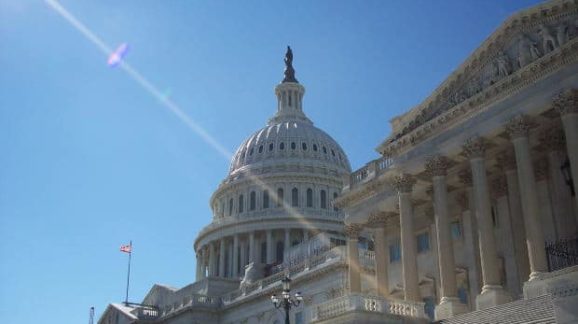Concerning transmission provisions in the Energy Permitting Reform Act

As Congress enters its lame duck period, the Energy Permitting Reform Act of 2024, introduced by Senators Joe Manchin (I-WV) and John Barrasso (R-WY), has emerged as a significant piece of legislation that has a chance of passing in one form or another. While the bill covers some permitting processes, its transmission provisions are by far the most consequential and controversial.
One of the more troubling items is the bill’s treatment of cost allocation for transmission infrastructure. The legislation requires that tariffs be allocated according to something called the “cost-causation principle,” which means that utilities can only charge customers for facilities or services that provide them with genuine benefits.
This initially sounds like a reasonable consumer protection measure. However, the bill’s ratepayer protections only apply to customers that receive “no benefit” or “trivial” benefits from transmission projects. This appears to weaken the existing standard requiring costs to be “roughly commensurate” with benefits. The danger is anyone receiving more than trivial benefits could be forced to pay for transmission facilities, encouraging overbuilding by spreading costs across a broader customer base.
The definition of “benefits” in the legislation also presents reason for concern. The bill includes “improved reliability” as a benefit that could justify imposing tariffs on rate payers. While enhanced grid reliability is certainly valuable, the legislation’s definition of “improved reliability” is problematically broad. It includes “increased geographic or resource diversification” as components of reliability.
Renewables like wind and solar can presumably meet this definition, in spite of their intermittent nature. This definitional sleight-of-hand could have far-reaching consequences. Under the bill’s framework, ratepayers could be forced to subsidize transmission infrastructure primarily benefiting other customers, even when those projects also threaten overall grid stability. The transmission language in the bill would also make it easier to untap Inflation Reduction Act subsidies, helping to shift the country from more reliable electricity generation (e.g. coal, natural gas) to less reliable electricity generation (e.g. wind and solar).
Utilities have been particularly vocal about their concerns. The National Rural Electric Cooperative Association has warned that the bill would “greatly expand federal control over co-ops, subjecting them to unacceptable regulation and driving up costs for consumers.” Major utilities like Duke Energy and Southern Company are also expressing reservations about increased federal authority over transmission planning.
The legislation does include some positive elements, such as excluding small geothermal energy projects from environmental reviews and setting deadlines for lawsuits challenging permit decisions. However, these benefits are dramatically overshadowed by the concerning transmission provisions, which could fundamentally alter how transmission infrastructure is governed and paid for going forward.
For conservatives, trying to push through some type of permitting bill in the lame duck session makes no sense when their leverage would be much stronger next year. Plus, flawed transmission policy wouldn’t need to be on the table. Congress should wait until the next session to pass genuine permitting reform when there will be more favorable conditions for reforms that streamline project approvals, reject federal overreach, and ensure strong consumer protections.